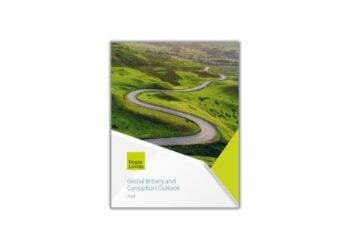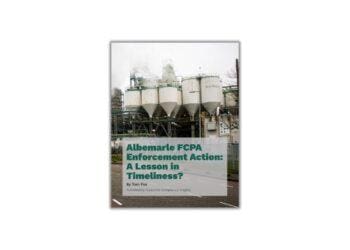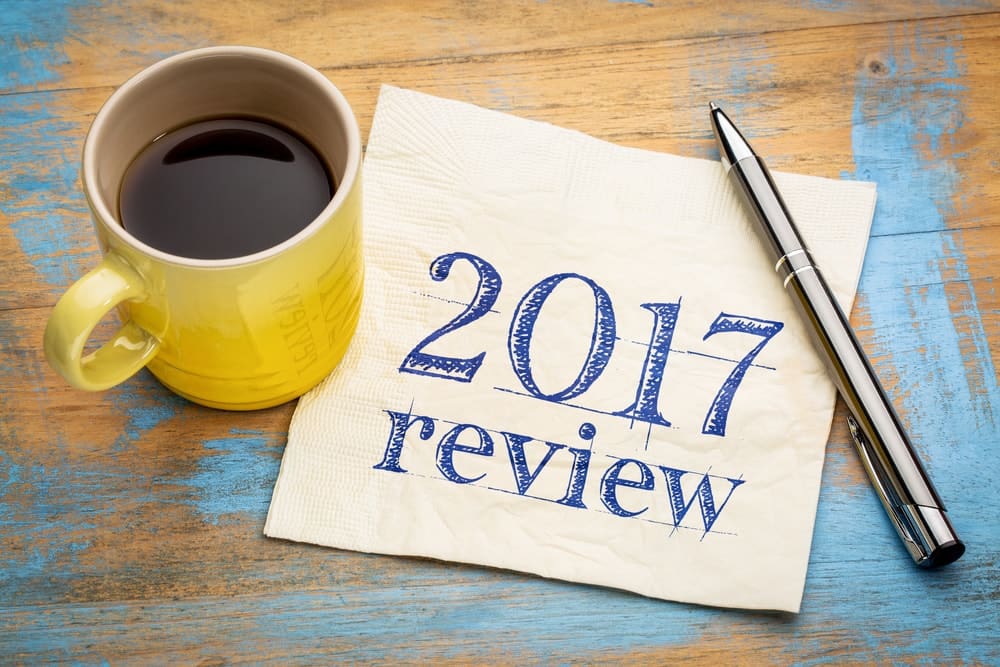Lessons Learned From Others Mistakes
Businesses are coming under increased scrutiny, to ensure that their domestic and foreign operations comply with anti-corruption and anti-bribery legislation. The risk of investigation has never been greater and the reputational risk, given the current media interest in these sorts of scandals, will increasingly be a consideration for companies especially publicly traded ones or companies pursuing financing or other significant transactions.
International trends towards tougher legislation and increased enforcement of anti-corruption laws internationally make non-compliance a real risk that companies must address as a business priority. There are significant financial, business and reputational repercussions to not having an anti-corruption policy and effective compliance program in place. These could include criminal charges, hefty fines and lost revenues.
Boards of Directors
Boards of companies currently operating, and many of those planning to expand internationally, face constantly shifting risks and unique challenges, including political, economic, regulatory and legal risks. They need to be able to evaluate these risks in the context of ongoing operations or expansion abroad. As well, they need policies, protocols and other mechanisms to deal in real-time with actions of foreign governments and their regulators who may be influenced by motives, politics, culture and value systems embedded in foreign markets but unknown to corporate headquarters.
Accordingly, if you are a senior executive, as part of your good governance responsibilities, you should ask yourself the following questions:
- Is your board structured to accommodate the constant demands of your geographic presence, use the tools at its disposal and demonstrate vigilance leading to reliable oversight?
- How does your board make informed decisions and assess the financial impact of these risks?
- Who does your board rely on and how does it obtain truthful, independent, knowledgeable feedback through formal or informal channels when it cannot be onsite?
- How does your board understand the complexities that include political instability or expropriation risk, adverse tax regimes, fluctuating currencies and inflation, products compliance, environmental laws, human resources anti-corruption, issues including local expectations of benefits and pension obligations, fraud, money laundering, corruption, corporate wrongdoings, legal enforcement instigated without due process, which may all arise in international operations and influence ethical behaviors across an enterprise?
Those issues weight heavily on a company’s corporate reputation and jeopardize goodwill with regulators, investors, shareholders, customers and vendors.
Combating corruption and fraud is an endless battle and in order to keep up with global fraud trends, fraud deterrent must show determination and perseverance.
Anti-corruption Compliance
The most challenging aspect of anti-corruption compliance is ensuring that it is integrated into company operations and the overall business strategy. In the same way that security regulations are only effective if they are accepted, understood and implemented by all, anti-corruption procedures require employees to accept and appreciate their effectiveness in order to ensure appropriate implementation.
Although talented people, with the best intentions, design anti-corruption compliance procedures, they are up against audacious individuals who can be very creative at bypassing company rules. That is why it is necessary to question our way of addressing the issue on a regular basis. Compliance must evolve constantly to adapt to the ever-changing methods used by criminals.
Recent Cases
A seemingly endless stream of fraud stories hits the headlines every day. In March 2016, Andrew Caspersen, an Ivy League-educated financier who worked at investment banker Paul Taubman’s PJT Partners Inc., defrauded his victims of more than $38 million and also in May 2017, European soccer star Lionel Messi, spent his day in court instead of a soccer field because he was found guilty of defrauding tax authorities.
The WorldCom accounting scandal was a situation in which corporate governance failed and the board of directors was caught unaware.
The Olympus fraud shows that tone at the top matters. C-level executives must act according to the principles expected of employees at all levels and across the enterprise.
Directors need to create and support a corporate culture of ethical behavior, diligent compliance and an environment where people do the right thing.
Assuming the board has implemented strong governance practices and set the proper tone at the top, how does a board:
- identify and address ‘red flags’?
- determine what practices should be followed to ensure that its expectations are implemented?
- balance its responsibility versus management’s responsibility?
- ensure that an ethical corporate culture is embedded into the organization?
Panama Papers
With the leaks related to the “Panama Papers”, we learned The International Consortium of Investigative Journalists have obtained millions of documents showing heads of state, criminals and celebrities using secret hideaways in tax havens.
- Files reveal the offshore holdings of 140 politicians and public officials from around the world
- Current and former world leaders in the data include the prime minister of Iceland, the president of Ukraine and the king of Saudi Arabia
- More than 214,000 offshore entities appear in the leak, connected to people in more than 200 countries and territories
- Major banks have driven the creation of hard-to-trace companies in offshore havens
Offshore banking is not in itself illegal, and those named in the “Panama Papers” should not automatically be presumed to have done anything wrong, but history has shown that secrecy attracts those with something to hide. The offshore banking system is being abused for illicit purposes such as tax evasion and money laundering resulting from corruption.
Destroyed Faith
Citizens in countries across the globe continue to see business executives and politicians as being corrupted. Corruption shakes the foundations of civil society, weakens trust in the public institutions and destroys faith in the leadership upon which democracy depends.
Governments around the world must urgently take full action to investigate the documents from the leak of the “Panama Papers”, and if there is a shred of evidence that these allegations of wrongdoing are true and the laws have been broken, then offenders must be quickly prosecuted in order to restore the public’s faith in a corruption-free government.
Corruption is decried across cultures and throughout history; but, like other crimes, it has grown increasingly sophisticated over the last several decades, with devastating effects on the well-being and dignity of countless innocent citizens.
Corruption and bribery, price-fixing, systemic financial manipulation, toxic spills and corporate misconduct have tragic and far-reaching consequences for individual victims and society at large.
Fines for corporate misconduct have reached astronomic levels unthinkable a handful of years ago, yet individual managers and directors are rarely held accountable.
However, those issues weigh heavily on a company’s corporate reputation and jeopardize goodwill with regulators, investors, shareholders, customers and vendors. We have seen over the past few years that companies named in fraud and corruption scandals allegations have seen the market price of the shares reduced substantially.
In conclusion, here are some of the most important lessons I have learned from various corruption cases:
- The biggest criminals write laws that make their crimes legal.
- Many corruption networks and corrupts leaders are so greedy that they leave damaged people behind; These people may become important sources for an investigation.
- Corrupt individuals continue to use their wife’s names or relatives’ names as a front.
- There are hidden and complex corruption networks where even leaders who publically campaign for transparency extract as much as they can from their administrations. Not even in the most extreme conspiracy theory would you imagined how wide and how deeply entrenched and those corrupt networks.
- In spite of the strict international regulations after September 11, banks don’t do real due diligence to find out the origin of the funds they accept. Most of them accept a simple signed contract that could be faked.



 Marc Tasse is an investigative and forensic accountant and an internationally renowned subject matter expert in the fields of anti-bribery / anti-corruption, anti-money laundering and anti-fraud. Marc examines financial crime from different angles and explores what motivates people to break the law, how wrongdoers cover their tracks and what can be done to put a stop to the looting.
An award-winning lecturer in the MBA program at the Telfer School of Management and in the Common Law Section at the University of Ottawa’s Faculty of Law, his current research focuses on the actual and potential effects of allegations of corruption and improper financial reporting on publicly traded companies’ market capitalization.
Marc is a Chartered Professional Accountant – Chartered Accountant (CPA, CA) (Canada), a Forensic Certified Public Accountant (FCPA) (USA) and a Certified Internal Controls Auditor (CICA) (USA). He carries the designation of Certified in Financial Forensics (CFF) (USA), and holds both an Honours Bachelor of Commerce and a Master’s degree in Business Administration (MBA) from the Telfer School of Management at the University of Ottawa.
Marc Tasse is an investigative and forensic accountant and an internationally renowned subject matter expert in the fields of anti-bribery / anti-corruption, anti-money laundering and anti-fraud. Marc examines financial crime from different angles and explores what motivates people to break the law, how wrongdoers cover their tracks and what can be done to put a stop to the looting.
An award-winning lecturer in the MBA program at the Telfer School of Management and in the Common Law Section at the University of Ottawa’s Faculty of Law, his current research focuses on the actual and potential effects of allegations of corruption and improper financial reporting on publicly traded companies’ market capitalization.
Marc is a Chartered Professional Accountant – Chartered Accountant (CPA, CA) (Canada), a Forensic Certified Public Accountant (FCPA) (USA) and a Certified Internal Controls Auditor (CICA) (USA). He carries the designation of Certified in Financial Forensics (CFF) (USA), and holds both an Honours Bachelor of Commerce and a Master’s degree in Business Administration (MBA) from the Telfer School of Management at the University of Ottawa.







